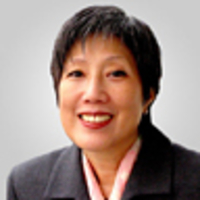
With their jet-black hair and dark charcoal suits (all but one wore red ties) China’s new leaders strode out onto a red-carpeted podium Thursday exuding conformity and continuity. That uniformity is more than skin-deep. Four of the seven men comprising China’s new Politburo Standing Committee are princelings, the younger relatives of party veterans. They identify with the goals of the communist revolution and—so the theory goes—their pedigrees should give them greater confidence to break away from China’s antiquated economic models and political stagnation to bring about what Beijing’s new top leader, Xi Jinping, called “the great revival of the Chinese nation.”
Analyst Zhang Lifan, formerly with the Chinese Academy of Social Sciences, predicted that, as a princeling, “Xi will have a stronger will to carry out political reform, in order to keep the party in a leading position for coming generations.”
Five of the top seven, however, are seen as political conservatives. They’re members of the “elitist” coalition in Chinese politics and protégés of former President Jiang Zemin, a party elder who stepped down as president in 2003 but bounced back into politics with a vengeance this year, actively lobbying for his favorites in the current reshuffle at the expense of officials linked to the “populist” faction. The big question is whether this new team can bring about economic and political change without undermining support for the Communist Party and, more to the point, alienating powerful vested interests identified with the “red nobility.”
Many analysts are skeptical, arguing that the triumph of the princelings could trigger more tensions behind the leadership’s carefully constructed veneer. “This situation creates a potential backlash against the Jiang camp and against princelings,” warned Cheng Li, a sinologist at the Brookings Institution. “They won a lot of seats but may pay a huge price in months or years to come—because of the way they got these positions and the way elderly leaders interfered.”
Several key themes that emerged from the much-awaited unveiling of China’s new top team.
1. President Hu Jintao did the right thing. Xi’s predecessor burnished his own legacy and set an important institutional precedent by giving up all of his important party posts simultaneously. Not only did Hu step down yesterday as party chief, but he relinquished chairmanship of the party’s influential Central Military Commission as well—giving Xi a robust mandate to be commander-in-chief. In his early career, Xi also had worked for a former defense minister, and his pedigree gives him close ties to the brass. “Military officials feel closer to princelings than to non-princelings,” said economist Hu Xingdou at the Beijing University of Technology. (By contrast, Hu’s predecessor, Jiang, made Hu wait two additional years between vacating the top party post and the top military job, a hiatus that proved humiliating to Hu and unpopular among party elites). Next March when government —as opposed to party—jobs get reshuffled, Hu is slated to step down as president as well, to make way for Xi.
2. Old conservatives trumped younger reformists. Two rising stars identified with more liberal politics, Li Yuanchao and Wang Yang, were once seen as strong contenders for the top leadership team. Both failed to make it this time. That benefited more senior Jiang allies who are slated to retire in 2017 at the next party congress. (Xi is expected to govern for two terms.) This may give Li and Wang their chance for promotion—but the time lag and Xi’s need to consolidate his authority suggest significant political reforms may have to wait five more years, at least. “The new lineup is bad news for political reformers,” concluded Li at Brookings. “It’s actually quite good for economic reform prospects. But in today’s China, economic reforms cannot go too far without fundamental changes in the Chinese political system, without political reforms. That’s the problem.”
3. The factional balance between elitists and populists is no longer at equilibrium. Which faction dominates the top leadership group has far-reaching political and economic implications. The elitist coalition is more identified with the priorities of city-dwellers and coastal economies (many of them export-dependent). Populists are more likely to champion poorer, inland provinces and the concerns of less well-off Chinese such as affordable housing and health care. In the old, nine-member Politburo Standing Committee, these two coalitions that dominate Chinese politics were almost equally balanced, with five elitists and four populists.
Now the factional lineup has shifted dramatically. Only two members of the seven-man Politburo Standing Committee—Premier-To-Be Li Keqiang and Liu Yunshan—are populists identified with President Hu. Five of the top seven leaders are elitists, all of them Jiang allies. These are party head Xi; Vice Premier Zhang Dejiang, who’s slated to become parliament head; Yu Zhengsheng, who’s expected to head a parliamentary advisory body; party propaganda czar Liu Yunshan; Vice Premier and finance expert Wang Qishan, who now heads the party’s anti-corruption watchdog; and Zhang Gaoli, who’s slated to become executive vice premier. “The factions among these seven men are out of balance,” warned Brookings’s Li, “This could make their dynamic more contentious.”
In his first public speech as China’s new party head, Xi appeared relaxed and comfortable inside his own skin—unlike with the carefully scripted public appearances by Hu, who often seemed robotic and ill at ease. In a down-to-earth tone, Xi talked about the “great renewal of the Chinese nation,” but mentioned socialism only once. He candidly acknowledged that the party had been tainted by “corruption, taking bribes, being out of touch with the people, undue emphasis on formalities and bureaucratism.” And he claimed that “ours is a political party that serves the people wholeheartedly...we have every reason to be proud—proud but not complacent. We will not rest on our laurels.”
After nearly a year marred by a slowing economy, factional jockeying and high-level political scandals such as the fall of princeling Bo Xilai, Xi’s new team will have to hit the ground running to surmount the challenges ahead.





